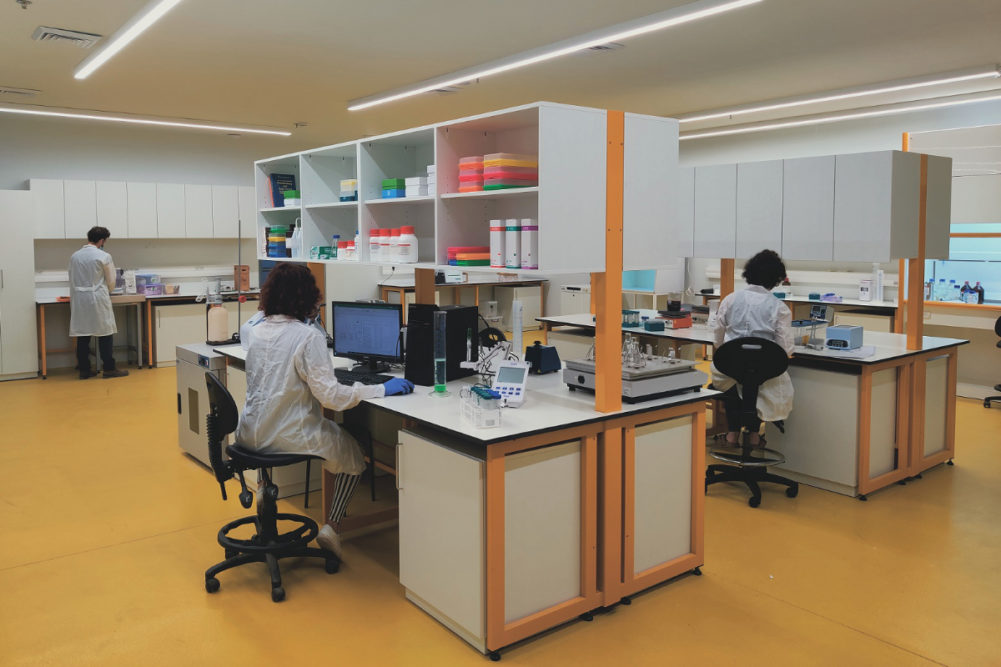GIVAT BRENNER, ISRAEL — Equinom, Ltd., the first company to design seeds exclusively for the food industry, has opened a new R&D center in Kibbutz Givat Brenner. The new facility brings together all the company’s departments — biochemistry, applications, sensory and breeding — and will enable the departments to work and communicate synergistically throughout the course of seed breeding and development, resulting in a more efficient and more accurate process, Equinom said.
Equinom said the new R&D center is actually a vintage building that has been restored.
“We faced a slew of challenges reshaping an antique warehouse into a modern facility,” said Gil Shalev, chief executive officer of Equinom. “But sustainability plays a big part in Equinom’s core values. Our decision to relocate to an old warehouse instead of building an entirely new facility is in line with our commitment to combine traditional treasures with high-tech capabilities.”
The new R&D center is more than three times the size of Equinom’s original facility and houses four laboratories: a biochemistry laboratory, a food application laboratory, a high-tech sensory laboratory and a seed processing laboratory.
Equinom said the biochemistry laboratory allows for full analysis of a seed strain’s nutritional profile (protein, oil/fat, fibers, starch, etc.) with high-throughput capacity and analysis methodology.
Meanwhile, the food application laboratory is instrumental in interpreting the needs of the food industry from seed to table. It can directly incorporate food engineering inputs into Equinom’s breeding technology.
“Consumers are now demanding clean label plant-based products,” said Itay Dana, vice president of marketing at Equinom. “By discovering appealing textures starting at a seed level for, as an example, meat analogues, we can dramatically reduce the need for extensive processing This means food manufacturers are better able to provide consumers products with cleaner — and clearer — labels. Equinom’s seeds can potentially reduce production cost by almost 40% via fewer ingredients, lower price, reduced need for flavor enhancers, and encouraging strong consumer adoption.”
Equinom’s new sensory laboratory includes organoleptic tools for improving the design of better tasting food products, including an advanced electronic nose (“e-nose”), which Equinom said can analyze seeds for thousands of taste compounds, reducing off flavors. The laboratory also features an in-house internal sensory panel, which Equinom said allows the company to trace the genetic background of the “good” flavors and merge those genetic traits into the breeding algorithms in a way that the resulting taste will be an intrinsic trait in the seed’s breeding programs.
“Introducing the e-nose lets us target desirable traits more accurately and design seeds that produce palate-pleasing products,” Mr. Shalev said. “As a bonus, it also reduces the need for maskers to block unpleasant flavor notes.”
The fourth laboratory handles seed processing. Equinom said the new R&D center features 4,800 square feet dedicated to seed processing, and a new, larger climatized seed storage unit now contains the company’s legume germplasm collection.
In addition to establishing the new facility in Israel, Equinom announced it has opened a US facility in Indianapolis for offices and storage. The new facility will store planting seeds of sesame, yellow pea, and soybean (Equinom’s main commercial products) plus function as the Midwest office for the company’s new recruits, Equinom said.





